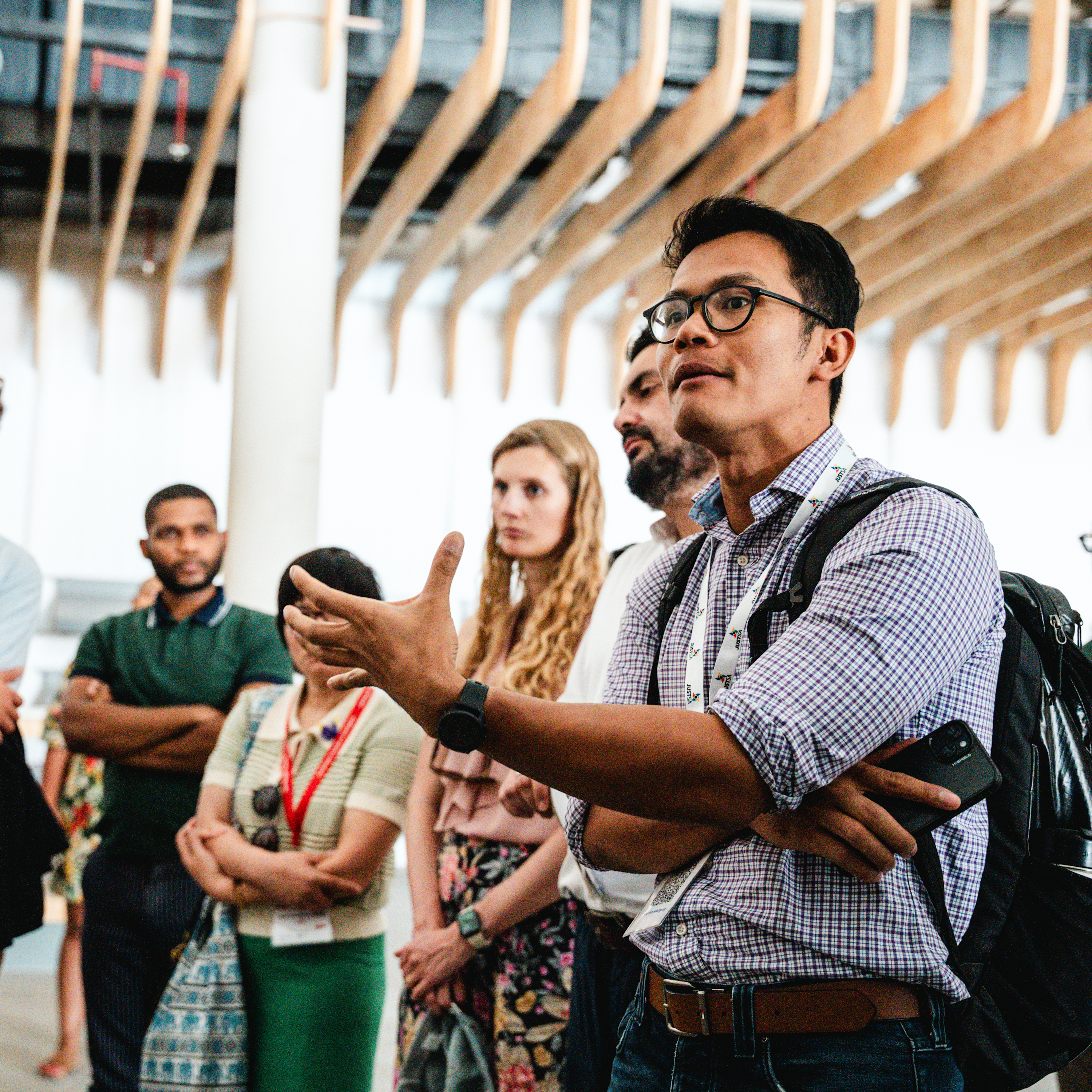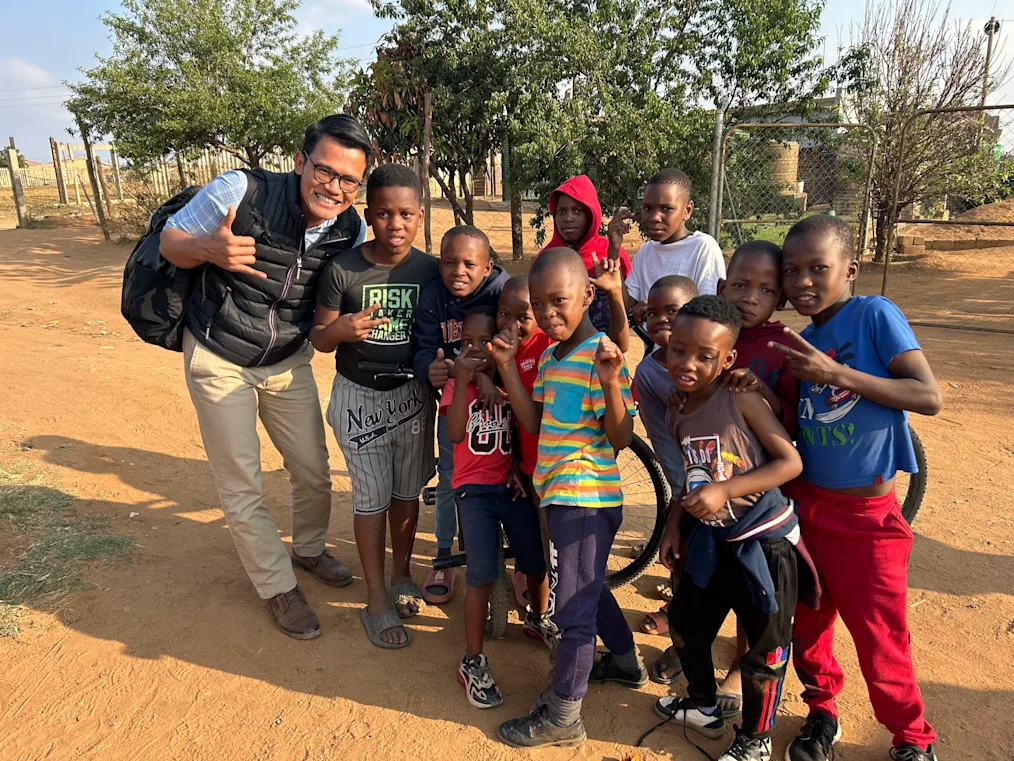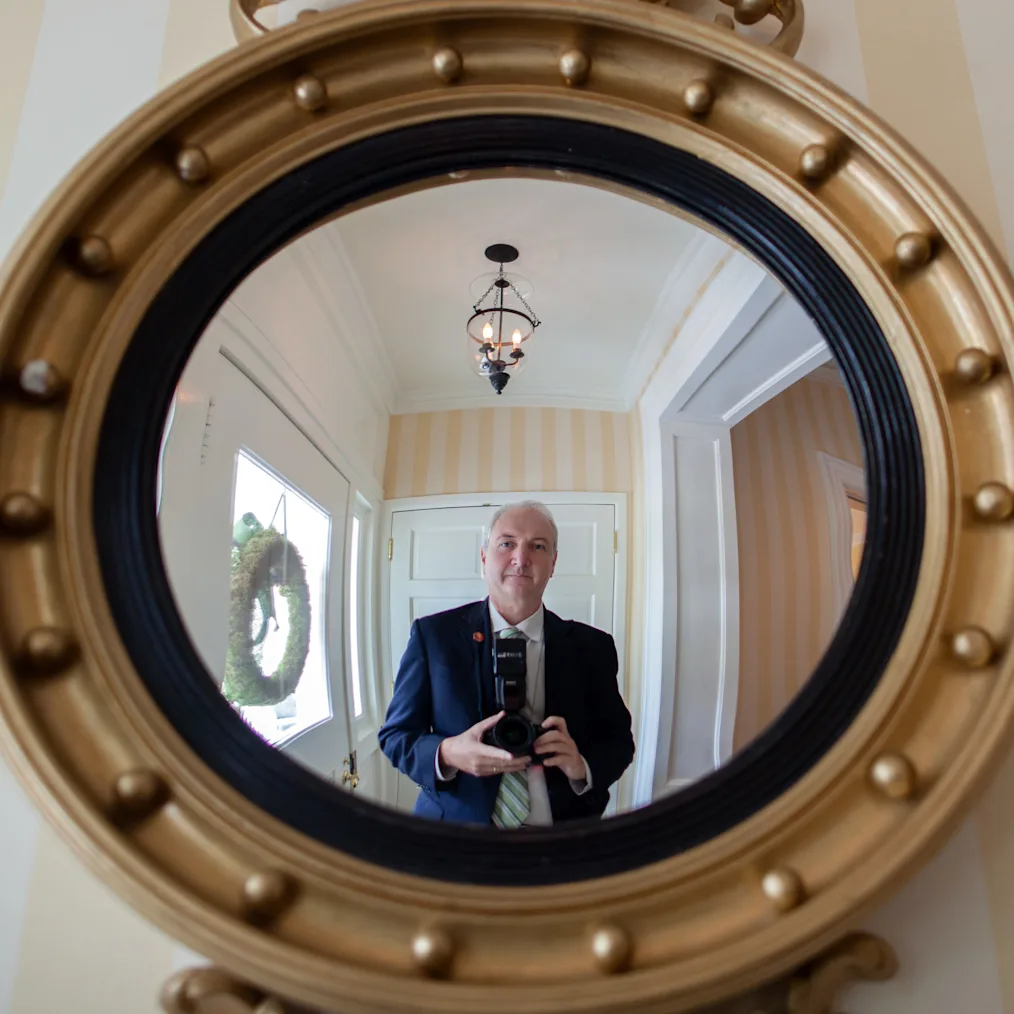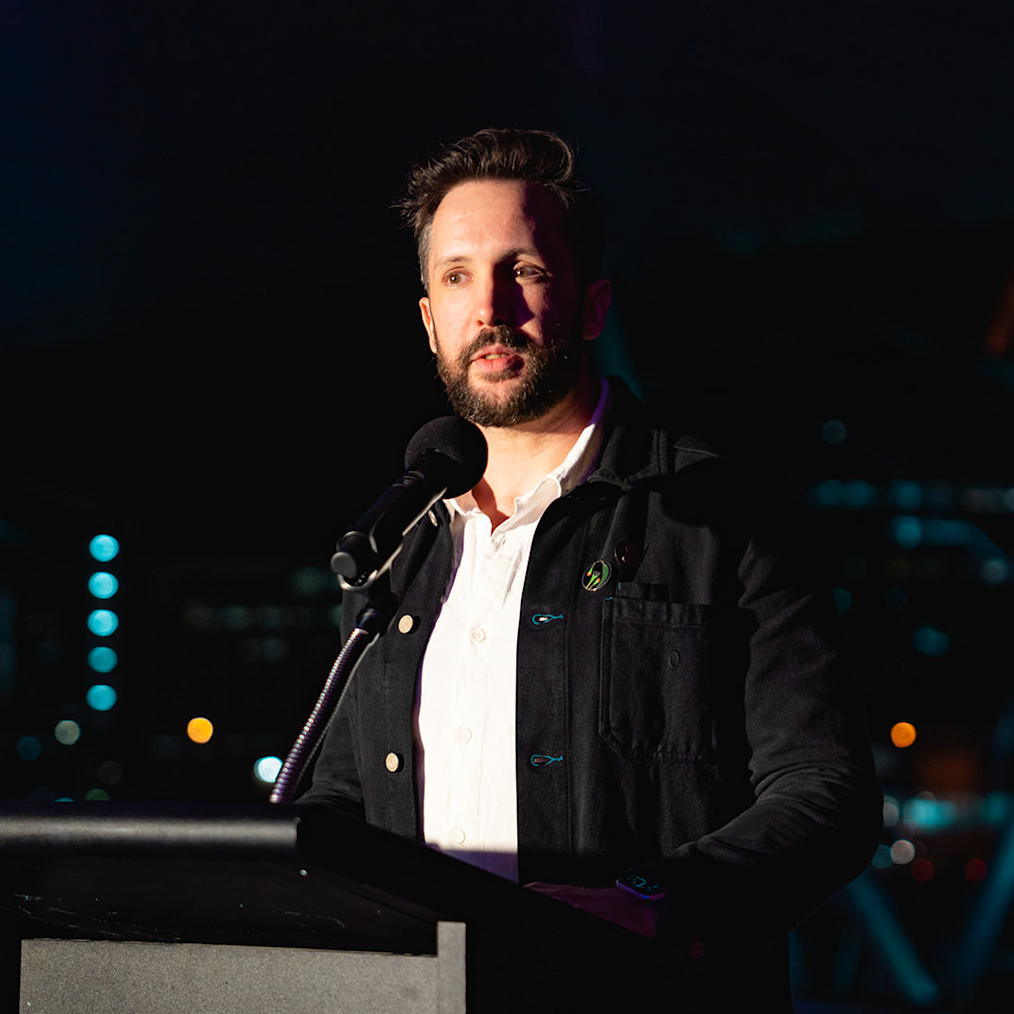How one Obama Leader is shaping an inclusive energy future
Learn how Charles Klaikaew uses his skills to help one of Thailand’s most overlooked communities gain a voice at the decision-making table.

Charles Klaikaew believes real change begins with deep listening—and the courage to act. The 2024-2025 Obama Foundation Asia-Pacific Leader has dedicated his skills to ensuring that one of Thailand’s most marginalized communities has a voice at the decision-making table.
Charles’s work in climate justice and sustainability began in Thailand’s Lampang region, home to the largest open-pit coal mine in Southeast Asia.
Growing up, Charles saw how the national government often overlooked this town, leaving its people without a voice. When the Thai government announced plans to shut down coal mines across the country, Charles saw the risk of his community being left behind once again.
For Lampang, where thousands depended on the mines for their livelihoods, the closure caused a financial crisis. Nine thousand people in Mae Moh were directly hit by the mine’s closure, with another 35,000 indirectly impacted. Families feared how they'd manage to make ends meet at a time when the community was frustrated about having no voice in the national discussion about the mine's closure.
In this moment, Charles asked a crucial question: “How do you transition away from coal without leaving the people behind?”
In 2023, Charles launched the IKI Just Energy Transition (IKI JET) initiative (Opens in a new tab) in Thailand as a part of a multi-country effort to help coal-dependent regions shift toward sustainable economies.
Charles didn’t arrive with quick fixes—he listened and the community responded with enthusiasm. Through community-led sessions, former mine workers began training for green jobs and exploring careers in renewable energy, sustainable agriculture, and tourism.
Charles’ approach is collaborative, bringing unlikely allies together—coal workers, local leaders, activists, government officials, and technical experts—working side-by-side to create solutions. Their voices are now helping guide regional and national policy dialogues.
"In one key meeting in Lampang, I facilitated a conversation that included coal miners, ethnic minorities, informal workers, and neighboring country nationals, all of whom often lack representation," Charles reflected. "Amid the heat, the smell of coffee, and the hum of fans, these diverse groups found common ground, transforming skepticism into shared hope for a just transition."
The model (Opens in a new tab) has spread beyond Thailand to six other countries—Indonesia, Mongolia, Vietnam, South Africa, Chile, and Colombia—each facing the challenge of moving beyond coal.
“The transition moves at the speed of trust,” Charles says about the work in Thailand. “If you ignore people, they resist. But when people feel heard and are part of the solution, they become partners in change.”
Charles also emphasizes the value of youth engagement, working with universities and vocational schools to ensure the next generation has the skills needed for green jobs.
He credits his experience in the Obama Leadership Network with helping him develop his leadership tools and expand his global support network. He credits the program’s Hope to Action framework with helping him navigate complex challenges with empathy and openness.
For Charles, this journey is not only professional but deeply personal. “We are the change that we seek,” he said.




